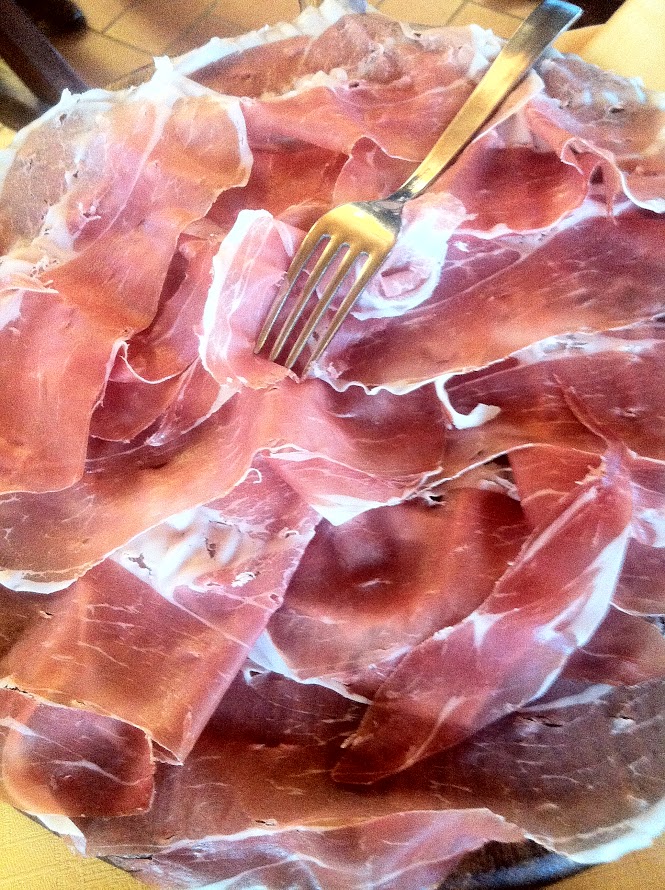
If you’re a food enthusiast planning a trip to Parma, you’re likely drawn to the allure of Prosciutto di Parma, one of Italy’s most celebrated culinary treasures. The region around Langhirano, often called the heart of Parma’s prosciutto production, offers multiple ways to explore this delicacy. With options like Salumificio Conti, Salumificio La Perla, and the Museo del Prosciutto, each offering unique experiences, choosing the best tour can be challenging. In this article, we’ll explore the differences between these three popular destinations, covering their highlights, visitor experiences, and what makes each unique.
1. Salumificio Conti: Tradition and Innovation
Salumificio Conti is a family-owned business in Langhirano that has been producing Prosciutto di Parma for over 50 years. The Conti family has combined traditional techniques with modern innovations, making their prosciutto stand out. A visit to Salumificio Conti offers an in-depth look at the entire prosciutto production process, from salting to aging in their historic cellars.
One of the unique aspects of a tour at Conti is the attention to the differences in aging processes. Visitors are guided through the various maturation stages, where they can see and smell the transformation of the pork legs into prosciutto. The tour typically concludes with a tasting session, where you can sample the 24-month-aged prosciutto and other cured meats, like Dolce Culatta
For those seeking a deep dive into prosciutto production combined with a tasting experience, Salumificio Conti provides an authentic and educational visit. They also offer tours in English and can accommodate private group tours, making it a flexible choice for tourists and food aficionados alike.
2. Salumificio La Perla: A Focus on Parma Ham Artistry
With over 30 years of expertise, Salumificio La Perla in Langhirano has established itself as a premier destination for Prosciutto di Parma. Known for its meticulous quality control and dedication to tradition, La Perla offers a classic prosciutto experience steeped in local culture and history.
Visitors at La Perla are introduced to the prosciutto production process, highlighting the delicate balance of skill and patience involved. The tour includes a look at each production stage, including the special aging rooms where the prosciuttos acquire their signature flavors. The tour also includes a tasting, often featuring La Perla’s other products, such as Parmigiano Reggiano, paired with local wines. For those interested in a more intimate, family-driven experience, La Perla offers a personal touch that resonates with visitors
La Perla’s tours emphasize the artistry of prosciutto-making, making it ideal for those wanting to connect with the heritage and traditional craftsmanship of Parma ham. Unlike Conti, La Perla’s focus is less on modernization and more on preserving the classic techniques, which adds to its charm.
3. Museo del Prosciutto di Parma: A Cultural Journey
For those interested in a broader exploration of prosciutto beyond a single producer, the Museo del Prosciutto offers a comprehensive view of Parma’s rich culinary history. Located in Langhirano’s former Foro Boario, the museum is part of the Food Museums network of the Parma province, which also includes museums dedicated to Parmigiano Reggiano, Pasta, and other local products
The Museo del Prosciutto provides a well-rounded experience covering the history, techniques, and cultural significance of Parma’s prosciutto production. The museum offers an exhibition of photos, tools, and historical documents, giving visitors a historical perspective on prosciutto’s evolution over the centuries. There is also a dedicated tasting area, where guests can sample prosciutto while enjoying panoramic views of the Parma countryside.
Unlike Conti and La Perla, the Museo del Prosciutto offers a more educational and self-paced experience, making it suitable for families and those with a strong interest in food culture. While it doesn’t provide the direct access to production facilities, the museum’s extensive exhibits and tasting opportunities offer a well-rounded understanding of Parma’s famed prosciutto.
4. Comparing the Experiences
Each of these three options offers a unique take on Parma’s prosciutto:
- Salumificio Conti is ideal for those wanting an immersive look at prosciutto production within a modern family-run business. Their tours are detailed and well-suited for small groups looking for a behind-the-scenes experience.
- Salumificio La Perla is the go-to for traditionalists. It offers a warm, family-focused atmosphere that highlights the artisanal aspect of prosciutto-making. Visitors seeking a connection to Parma’s food heritage will appreciate La Perla’s dedication to classic methods.
- Museo del Prosciutto serves as the cultural hub for all things prosciutto. Ideal for families and those wanting a historical overview, the museum is the best choice for a self-guided experience that combines education with tasting.
5. Which Tour Should You Choose?
If you’re trying to decide between these three experiences, consider your preferences. If you’re deeply interested in the production process and want a guided tour with tastings, Salumificio Conti might be your best option. For a more personal, tradition-focused experience, La Perla offers a charming and intimate setting. However, if you’re looking for a broader educational experience that covers not only prosciutto but also the cultural context of Parma’s culinary legacy, Museo del Prosciutto is your answer.
In conclusion, Langhirano offers a variety of ways to explore the world of Prosciutto di Parma. Whether you prefer the hands-on approach at Conti, the traditional warmth at La Perla, or the historical insights at the Museo del Prosciutto, each of these tours provides a unique perspective on one of Italy’s most beloved culinary traditions. Whichever you choose, you’re sure to leave with a deeper appreciation for the art of prosciutto and the flavors that make Parma famous.
Discover more from Emilia Delizia
Subscribe to get the latest posts sent to your email.